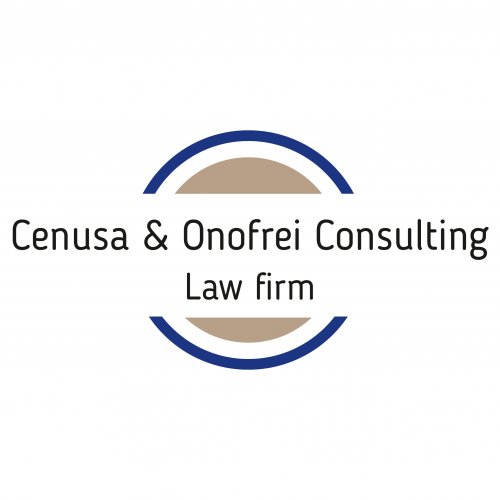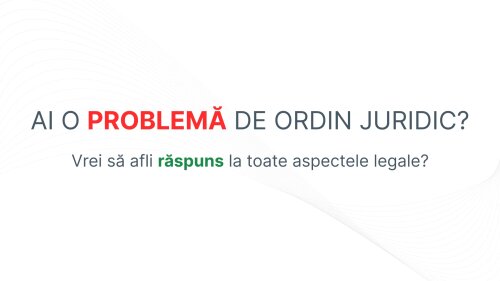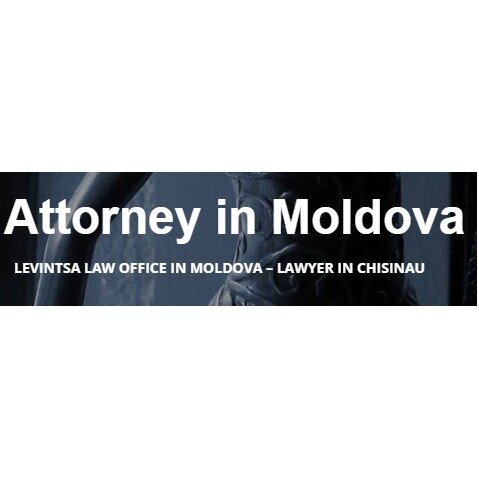Best Bankruptcy & Debt Lawyers in Republic of Moldova
Share your needs with us, get contacted by law firms.
Free. Takes 2 min.
Or refine your search by selecting a city:
List of the best lawyers in Republic of Moldova
About Bankruptcy & Debt Law in Republic of Moldova
Bankruptcy & Debt laws in Republic of Moldova govern the legal process for individuals and businesses facing financial difficulties. Bankruptcy allows debtors to eliminate or repay their debts under the protection of the court. Seeking legal advice in Bankruptcy & Debt can help navigate the complex legal procedures and protect your rights.
Why You May Need a Lawyer
Having a lawyer in Bankruptcy & Debt cases can be crucial in situations such as negotiating with creditors, filing for bankruptcy, defending against creditor lawsuits, or dealing with financial institutions. A lawyer can provide valuable advice, represent you in court, and ensure your rights are protected throughout the process.
Local Laws Overview
Key aspects of Bankruptcy & Debt laws in Republic of Moldova include the types of bankruptcy available, eligibility criteria, the process for filing bankruptcy, creditor rights, debt dischargeability, and the role of the court in overseeing bankruptcy cases. It is essential to understand these laws to navigate the legal system effectively.
Frequently Asked Questions
1. What are the different types of bankruptcy in Republic of Moldova?
There are two main types of bankruptcy in Republic of Moldova: voluntary bankruptcy, where the debtor initiates the process, and involuntary bankruptcy, where creditors force the debtor into bankruptcy.
2. How can a lawyer help in negotiating with creditors?
A lawyer can negotiate with creditors on your behalf to reach a favorable settlement, reduce the amount of debt owed, or establish a repayment plan that works for both parties.
3. What debts can be discharged in bankruptcy?
Most unsecured debts, such as credit card debt, medical bills, and personal loans, can be discharged in bankruptcy. However, some debts, such as student loans or child support payments, are usually not dischargeable.
4. How long does the bankruptcy process typically take in Republic of Moldova?
The bankruptcy process can vary depending on the complexity of the case. It typically takes several months to a few years to complete, depending on the type of bankruptcy and individual circumstances.
5. What happens to my assets in bankruptcy?
Assets can be liquidated to repay creditors in Chapter 7 bankruptcy, while in Chapter 13 bankruptcy, you can keep your assets and repay creditors through a court-approved repayment plan.
6. Can I file for bankruptcy without a lawyer?
While it is possible to file for bankruptcy without a lawyer, having legal representation is highly recommended to navigate the legal process effectively, protect your rights, and maximize the chances of a successful outcome.
7. What are the consequences of filing for bankruptcy?
Filing for bankruptcy can have various consequences, such as a negative impact on your credit score, restrictions on obtaining credit in the future, potential loss of assets, and public record of bankruptcy filing.
8. How can I find a reputable bankruptcy lawyer in Republic of Moldova?
You can search for bankruptcy lawyers through legal directories, bar associations, or recommendations from friends and family. It is essential to choose a lawyer with experience in bankruptcy law and a track record of success.
9. What are the alternatives to bankruptcy?
Alternatives to bankruptcy include debt consolidation, debt settlement, negotiation with creditors, financial counseling, and budgeting to manage debt effectively without resorting to bankruptcy.
10. What should I do if I am facing overwhelming debt and financial difficulties?
If you are struggling with debt and financial difficulties, it is essential to seek legal advice from a bankruptcy lawyer immediately. A lawyer can assess your situation, provide guidance on the best course of action, and help you navigate the legal process effectively.
Additional Resources
For more information on Bankruptcy & Debt in Republic of Moldova, you can contact the Ministry of Justice, the National Legal Aid Agency, or local legal organizations specializing in bankruptcy law. These resources can provide valuable information and support for individuals in need of legal advice.
Next Steps
If you need legal assistance in Bankruptcy & Debt in Republic of Moldova, it is recommended to schedule a consultation with a reputable bankruptcy lawyer. During the consultation, you can discuss your financial situation, explore your options, and determine the best course of action to address your debt and protect your rights. Remember that seeking legal advice early can help prevent further financial complications and ensure a smooth resolution of your bankruptcy case.
Lawzana helps you find the best lawyers and law firms in Republic of Moldova through a curated and pre-screened list of qualified legal professionals. Our platform offers rankings and detailed profiles of attorneys and law firms, allowing you to compare based on practice areas, including Bankruptcy & Debt, experience, and client feedback.
Each profile includes a description of the firm's areas of practice, client reviews, team members and partners, year of establishment, spoken languages, office locations, contact information, social media presence, and any published articles or resources. Most firms on our platform speak English and are experienced in both local and international legal matters.
Get a quote from top-rated law firms in Republic of Moldova — quickly, securely, and without unnecessary hassle.
Disclaimer:
The information provided on this page is for general informational purposes only and does not constitute legal advice. While we strive to ensure the accuracy and relevance of the content, legal information may change over time, and interpretations of the law can vary. You should always consult with a qualified legal professional for advice specific to your situation.
We disclaim all liability for actions taken or not taken based on the content of this page. If you believe any information is incorrect or outdated, please contact us, and we will review and update it where appropriate.
Browse bankruptcy & debt law firms by service in Republic of Moldova
Republic of Moldova Attorneys in related practice areas.
Browse bankruptcy & debt law firms by city in Republic of Moldova
Refine your search by selecting a city.













